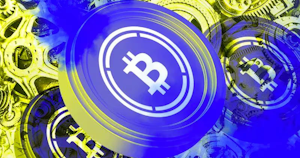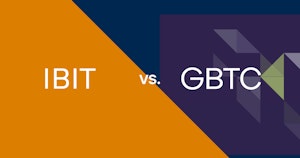Is Kaspa The Next Bitcoin?
Kaspa’s strengths (no premine, proof of work, capped supply) are undermined by its concentrated founding team and devs with outspoken political views, raising concerns about its neutrality and future forks.

“Is Kaspa the next Bitcoin?”
Today, we will examine the methodology for analyzing any new cryptocurrency, including Kaspa. I encourage you to watch this video even if you’re not especially interested in Kaspa. Kaspa is currently ranked number 24 among cryptocurrencies by market cap, positioned between ICP (Internet Computer) and PEPE.

Coinmarketcap
However, I believe Kaspa is a much more serious project than either. What is Kaspa?
According to their website, it’s a cryptocurrency that implements a protocol called GhostDAG, a generalization of the Nakamoto consensus.

Kaspa.org
Unlike blockchains, a BLOCKDAG orders all blocks in parallel within consensus, allowing for extremely high block rates, virtually instant transactions, and scalability at no cost to security.
This is based on a paper by Yonatan Sompolinsky, the founder of Kaspa, and others. GhostDAG appears to be a real innovation in this space.
One of Kaspa’s talking points is that it solves the trilemma faced by traditional cryptocurrencies, known as the 'blockchain trilemma.'

Vitalik Buterin was likely the first to write about this. It suggests you can’t have all three simultaneously if you want security, scalability, or decentralization.
Has Kaspa solved this trilemma?
From my cursory reading of their literature, if globally successful, Kaspa’s end state would involve a few people running massive archival nodes, thus threatening decentralization.
But I want to be fair. I’ll assume Kaspa’s GhostDAG is as amazing as they claim and has indeed solved the blockchain trilemma, which would be very exciting if true.
Good things about Kaspa:
Distinguishes itself from common altcoins and VC-issued coins with pre-mines
No pre-mine or initial token allocation to anyone, unlike Ethereum and Cardano
Runs on proof-of-work
Has a fixed maximum supply
However, one might question whether its forward monetary policy and future max supply are as credible as Bitcoin’s. Does the Kaspa community take the hard cap seriously, or could developers persuade them to increase the supply in the future?
Bitcoiners have been fanatical about not increasing the maximum supply for 15 years.
Kaspa has only been around for three years, so it might be too early to tell. Incentives suggest Kaspa holders wouldn’t want to dilute their holdings by increasing the supply.
Kaspa’s max supply is 28.7 billion coins, making it look cheaper than Bitcoin’s 21 million.
Bad aspects of Kaspa:
Living founder, Yonatan Sompolinsky, who tweets.
His tweet on October 7, 2023, quoting V for Vendetta, coincided with Israel’s invasion of Gaza.
This could be controversial, especially for Palestinians or Muslims. This is Ayn Rand on Israel and the Middle East.
Kaspa’s core development team happens to be primarily Israeli.
Is this really what I want to see tweeted out by the founder of the world’s supposed next global reserve currency?
I cannot definitely say that it is not.
While GhostDAG’s math and cryptography are neutral, the founder and developers' public stance on the Israel-Palestine conflict can be problematic.
… especially when they are constantly tweeting about Gaza.
Decentralization is crucial for cryptocurrencies, and having a politically vocal, living founder who can influence the community and development and who is primarily Israeli is not what you want to see when it comes to decentralization.
These people seem to still have an outsized influence on the community, which puts a lot of its trust in them.
Leave aside your own political or religious views on the Israel/Palestine tragedy for a moment.
Even assuming that Yonatan and his development team have zero influence over future Kaspa forks (which it would be naive to assume since Yonatan has a bully pulpit that he could choose to start using at any time.
This is one of the primary problems with having a living founder. It would probably be a similar disaster if Satoshi were active on social media today. Satoshi had the foresight and humility to leave the project and never be heard from again.
Yonatan didn’t.
This is one key difference between Bitcoin’s immaculate conception vs. Kaspa making a baby in front of everyone in public. The sad thing is that Yonatan himself understands this principle but has been unable to follow Satoshi’s superhuman path:
In the case of Bitcoin: “The doctor” (Satoshi) definitely vanished.
In the case of Kaspa: “The doctor” is still around and tweeting pro-Israel videos.
In the interest of being extremely clear and transparent about the point here (because I know my enemies will try to use this against me and possibly de-platformed for being “anti-Semitic.”
This is not about being for or against Israelis or Palestinians, Jews or Muslims, or even Christians (3% of Palestinians). It’s about the necessary pre-conditions for creating neutral money that can be embraced and used by 8 billion human beings from every country, state, and terrority in the world.
This includes Christians, Jews, Muslims, Buddhists, Hindus, Deists, Atheists, Agnostics, etc. It’s not a problem if your development team is all Israeli… it’s just the job of writing software. But, it’s not so great if you’re trying to create a new neutral money for the world.
And it’s even worse if your founder is actively tweeting and linking to pro-Israel videos. All I can say here is: Thank God Satoshi disappeared when he did and never came back.
In the case of Bitcoin: “The doctor” (Satoshi) definitely vanished. But it’s much more than that. In its early years, Bitcoin was nothing more than a curiosity and a collectible for nerds with zero monetary value.
Then, something amazing happened:
Bitcoin grew slowly and organically under the radar, experiencing a long and steady growth and distribution of coins that resulted in a spontaneous monetization event (Bitcoin Pizza Day).
Bitcoin didn’t have a Harvard or Hebrew University PhD in writing Medium posts and telling everyone he made it to get rich.
Many people fail to understand that creating new money involves multiple factors beyond cool new tech or cryptography.
GHOSTDAG certainly appears (to me) to be a genuine innovation. Some aspects of it could work well within the Bitcoin ecosystem (maybe as part of Layer 2, but you wouldn’t need the Kaspa token for that Layer 2 function).
Creating a new money requires a:
Fair community launch without a pre-mine (table stakes)
Kaspa does that well, unlike almost every other crypto in the world besides Bitcoin.
Slow organic process of growth in which the coins are globally distributed and spontaneously monetized.
Kaspa rushes this because its founder and development team are high-time preference investors.
Kaspa launched in November 2021, with 95% of its coins to be mined by July 2026, a much faster issuance schedule than Bitcoin.
True digital scarcity can only be created once, and Satoshi achieved that with Bitcoin. Subsequent attempts, like Kaspa, will always be copies, near-copies, copycats, derivatives, variations on Bitcoin, and claims they are “better” than Bitcoin—the Standard against which all other cryptocurrencies are measured.
Had Satoshi known about BLOCKDAG at the time, perhaps he would have used it as the basis for Bitcoin. But he didn’t and didn’t include it in Bitcoin’s design.
By the time Kaspa came onto the scene in late-2021, Bitcoin was already a globally distributed asset with powerful network effects and a market cap above $1 trillion. Bitcoin embodies a powerful first-mover advantage that no crypto, including Kaspa, can overcome.
Bitcoin already has a global brand. Kaspa does not.
Bitcoin is already plugged into the financial system everywhere, from savings, retirement accounts, corporate treasuries, ETFs, futures, options, etc.
By contrast, Kaspa is a new, niche product. It’s also not battle-tested like Bitcoin. Kaspa has yet to grow large enough to warrant attention from nation-state attackers, like Bitcoin.
Will Kaspa be able to survive when it is attacked?
Maybe. Do you feel lucky?
The Kaspa community is always quick to offer olive branches to Bitcoiners (a gesture I appreciate) and assure us that they are not trying to usurp Bitcoin’s place with Kaspa.
Common phrases from the Kaspa community:
“I don’t see it as a competitor to Bitcoin.”
“Kaspa is silver to Bitcoin’s gold.”
That phrase is particularly unfortunate.
Kaspa = “Silver” in Arabic.
“So, Kaspa is silver to Bitcoin’s gold.”
That’s the same silly marketing slogan Litecoin has been trying to use for years. This is what silver to Bitcoin’s gold has looked like for Litecoin:

It’s unclear why Kaspa would use this 'silver to gold' comparison since it hasn’t worked out well for Litecoin, and physical gold, historically, ended up demonetizing silver. This marketing metaphor demonstrates the Kaspa team’s ignorance of economic history.
The only reason people used physical silver on a bimetallic standard was because gold is very dense, expensive, and challenging to subdivide. Silver functioned as a “small change” to gold’s larger denominations.
This is obviously not a problem for software money like BTC, where you can subdivide BTC into sats and sats into smaller denominations if necessary.
A 1USD: 1SAT parity system is the same as saying 1 BTC = $100 million.
One person in the comment section asked: “Why the hate on Kaspa?”

YouTube
As for peaceful coexistence between different types of money, “I don’t see it as a competitor to Bitcoin” is absurd. All money competes with all other money. Money is war. Strong money vanquishes weak money. This has been happening lately, with the USD wiping out the Turkish Lira, the Lebanon Pound, and even the Japanese Yen.
Do you carry USD, EUR, and JPY in your wallet and bank account?
Of course not. It’s very inconvenient. Money is a winner-take-all game. Money always tries to converge to one.
Today, the world is still mostly on a USD Standard:
Almost all central banks hold USD-denominated U.S. treasuries as a reserve asset.
Most of the money in the world today is pegged directly or indirectly to the USD.
Subject to Federal Reserve monetary policy and its knock-on cross-currency effects.
We’d already have one global money if it weren’t for nation-states putting up gates and sanctions (which is admittedly a logical response to other governments issuing their own competing monies).
Bitcoin is much more difficult for nation-states to stop with gates and sanctions, and there is also a nation-state accumulation game theory behind it since no country can turn off or freeze the Bitcoin network. Bitcoin possesses all of the properties needed to become the world’s next global reserve currency and asset.
If you are on the “Kaspa is not a competitor to Bitcoin; we just want to peacefully co-exist with you guys…”
Then, it becomes obvious you don’t understand anything about economic history or how monetary competition works. Issuers of fiat put a gun (itself funded by the fiat money printers) to our heads and force us to use their money.
That’s why there are still different forms of money in the world, and more than one. Unless Kaspa puts a gun to our heads, it will have to compete in the free market against Bitcoin, just like fiat and other cryptocurrencies.
I have no doubt Kaspa will lose. Bitcoin’s first-mover advantage, global brand, and integration into the financial system make it difficult for Kaspa to compete. Bitcoin is already a top 10 global asset. Kaspa is still playing in the shallow end with a market cap under $5 billion.
Bitcoin is scarce, sound money. Fiat money is garbage.
It’s easy for scarce, sound money to defeat garbage. Kaspa has a much bigger fight on its hands than fiat. It will have to defeat a battle-hardened warrior with a 12-year lead over Kaspa and the best money the world has ever seen.
Good luck with that.
The Kaspa army is small and niche.
The Bitcoin army is large and global.
Bitcoin is front and center in the U.S. Presidential race.
Bitcoin is front and center on Wall Street today.
Bitcoin is front and center in geopolitics today.
Bitcoin is a trillion-dollar asset waging war on the global stage.
Meanwhile, Kaspa is still just a boy sitting at home, playing with his toy soldiers, and pretending that one day he will grow up to be Napoleon.
It won’t.
The Bitcoin army is a crazy, obsessed, smart bunch of fanatics who’ve been training for years and whose numbers far exceed the tiny Kaspa community.
If you store your savings in Kaspa, you will likely get poorer over time than if you were holding Bitcoin. Bitcoin has a large, dedicated community and is a battle-hardened protocol. You will likely be disappointed if you try to trade your way to more Bitcoin using Kaspa.
Every single money that has tried to dethrone King Bitcoin has failed. Kaspa might temporarily outperform Bitcoin, but it will likely trend to zero against Bitcoin over time.
Choose your money wisely. Money is a winner-take-all game, and the winner has been and will continue to be Bitcoin. Get on the winning team before it’s too late. It’s best to stay humble, stack sats, HODL Bitcoin, and ignore new cryptos claiming to complement or replace it.
Bitcoin University is an educational channel devoted to Bitcoin, financial freedom, and self-sovereignty. Matthew also covers relevant macro and financial news.
Learn more at: https://www.bitcoinuniversity.com/
Follow him on Twitter: @mattkratter
Join Bitcoin University: https://www.bitcoinuniversity.com/join
Matthew Kratter is the founder of Bitcoin University YouTube channel, which currently has over 235,000 subscribers.
Before going down the Bitcoin rabbit hole, he founded and ran Trader University, focusing on trading and investment strategies for stocks, options, and futures. Given his hedge fund background and decades of trading experience, Matthew provides a unique perspective.
In late 2019, after finally recognizing Bitcoin’s importance, he began liquidating his stocks and other investments and moving his savings into Bitcoin.
Now, Matthew is all in on Bitcoin, devoting the majority of my time to producing Bitcoin educational content on YouTube and on this site.
In his free time, he enjoys skiing and hiking in the Rockies with his wife, kids, and dogs.
More from Swan Signal Blog
Thoughts on Bitcoin from the Swan team and friends.


Bitcoin’s HODL Culture

By Matthew Kratter
Bitcoin’s culture of hodling, and how important it is both for building strong individuals and families, as well as creating the precondition for a Bitcoin circular economy to develop.


Bootstrapping Bitcoin

By Matthew Kratter
Launching a new cryptocurrency is challenging, needing miner compensation through new issuance (diluting holders) or transaction fees (requiring long-term demand). Bitcoin successfully navigated this quagmire.


IBIT vs. GBTC: Which is Best in July 2024?

By Drew
IBIT vs. GBTC. A review aiming to provide clear insights for both seasoned and novice investors. Which is better in July 2024!







